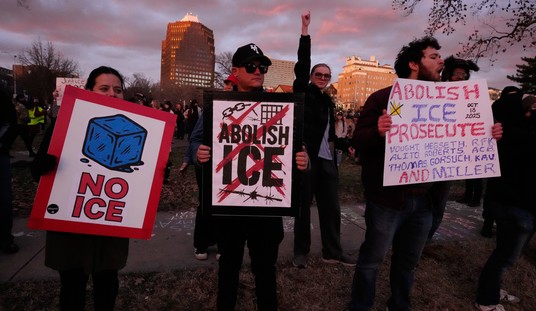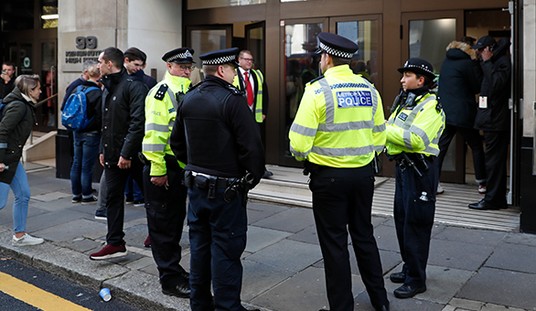Former NY Times’ editor James Bennet, the man who wrote the false claims about Sarah Palin’s connection to the 2011 Tuscon shooting, has been testifying in the libel trial about his state of mind when writing the editorial. Bennet’s argument is that what he wrote was just a mistake made under a tight deadline, one that wasn’t even intended to blame Palin for the mass shooting.
“Did you intend to cause Ms. Palin any harm through any of your edits to the draft?” the Times’ lawyer David Axelrod asked Bennet, a former Times editorial page editor, in Manhattan federal court.
“No, I didn’t,” Bennet responded.
Bennet also said “no” when asked if he tried to blame Palin or the political action committee…
In Wednesday’s testimony, Bennet maintained that he added the language while under deadline pressure without researching the issue, thinking that an “atmosphere of such highly charged political rhetoric” could prompt such incidents…
“If I thought it caused the violence, I would have used the word ’cause,'” Bennet said. “I should have slowed down.”
That’s his argument and he’s sticking to it. It could almost sound reasonable if you weren’t looking at what Bennet actually wrote. Here it is again:
Was this attack evidence of how vicious American politics has become? Probably. In 2011, when Jared Lee Loughner opened fire in a supermarket parking lot, grievously wounding Representative Gabby Giffords and killing six people, including a 9-year-old girl, the link to political incitement was clear. Before the shooting, Sarah Palin’s political action committee circulated a map of targeted electoral districts that put Ms. Giffords and 19 other Democrats under stylized cross hairs.
Conservatives and right-wing media were quick on Wednesday to demand forceful condemnation of hate speech and crimes by anti-Trump liberals. They’re right. Though there’s no sign of incitement as direct as in the Giffords attack, liberals should of course hold themselves to the same standard of decency that they ask for of the right.
Twice in two paragraphs he has connected Palin’s PAC to “incitement.” Here’s the Merriam Webster definition of “incite.”
1: to cause (someone) to act in an angry, harmful, or violent way
The victim had done nothing to incite [=provoke] the attackers.2: to cause (an angry, harmful, or violent action or feeling)
They were arrested and charged with inciting [=provoking] a riot.
The news incited widespread fear and paranoia.
Incitement is literally a cause or provocation of violence. If someone is charged with inciting a riot, that means they played a role in making it happen. So for Bennet to argue that he would have used the word “cause” if he’d meant that seems like a stretch. The ordinary meaning of incitement is something which causes or encourages a violent reaction.
Meanwhile, Slate reports that Palin’s attorneys have been focusing on one line from an email written by James Bennet. This seems to be a focus of their case.
At 10:35 that night, shortly after the piece went up on the Times website, Bennet got an email from conservative Times columnist Ross Douthat. Douthat was baffled by the editorial’s assertions about Palin. He wrote to Bennet that there was “no evidence Jared Lee Loughner was incited by Sarah Palin or anyone else, given his extreme mental illness.” Bennet told Douthat he’d look into the matter in the morning.
But Bennet was too concerned to wait until morning. He texted Williamson, who was already asleep and didn’t respond. And then he started looking into the facts. At 5:08 a.m, Bennet emailed Williamson and the section’s fact-checker writing, “I don’t know what the truth is here.”
Palin’s lawyers have quoted that sentence multiple times during this trial. It seems they’ll keep quoting it as often as they can. They’ve got a fair point: Why was a smart, accomplished journalist like Bennet wondering what the truth of something was after he’d already printed it in the New York Times? Shouldn’t he have figured that out, like, before it went out to millions of readers?…
Palin’s lawyers aren’t exactly arguing that Bennet personally had it out for Palin when he made the error. It’s more like they’re suggesting there was a preset narrative that existed in Bennet’s head.
They’re trying to prove Bennet acted with reckless disregard for the truth. I’ve said this before but I’ll say it again because I think it’s the core of this case. If accusing Palin (or her PAC) of clear incitement to mass murder when in fact there is no such connection at all doesn’t constitute reckless disregard for the truth, what could possibly qualify? In a way, even Bennet’s own argument supports this. Saying he was too rushed to do a proper job of it is just a way of justifying his own reckless behavior, i.e. if he’d only had more time, he’d have looked into the truth of what he was writing. The jury may decide the law protects the Times even in this case but if so then it’s hard to see how why “reckless disregard” was included in the law at all.
Update: Erik Wemple is still live-tweeting the trial based on an audio feed from the courtroom. He notes that Bennet’s explanation for his use of “incitement” seems at odds with what he wrote.
The mind-boggling component here is that Bennet, later in the day, inserted very definitive incitement language into the published editorial. Yet here he was using more careful language in an email to staffers. Wild.
— ErikWemple (@ErikWemple) February 9, 2022
And a reference to him not knowing what the truth was the next morning.
Furthermore, Bennet protests against any interpretation other than that he was trying to set things straight: "I didn’t say I didn’t care what the truth is here."
— ErikWemple (@ErikWemple) February 9, 2022
Yes, of course he cared once it was clear there was a backlash and he was wrong. The problem is that he didn’t care before the allegation of incitement was published.








Join the conversation as a VIP Member